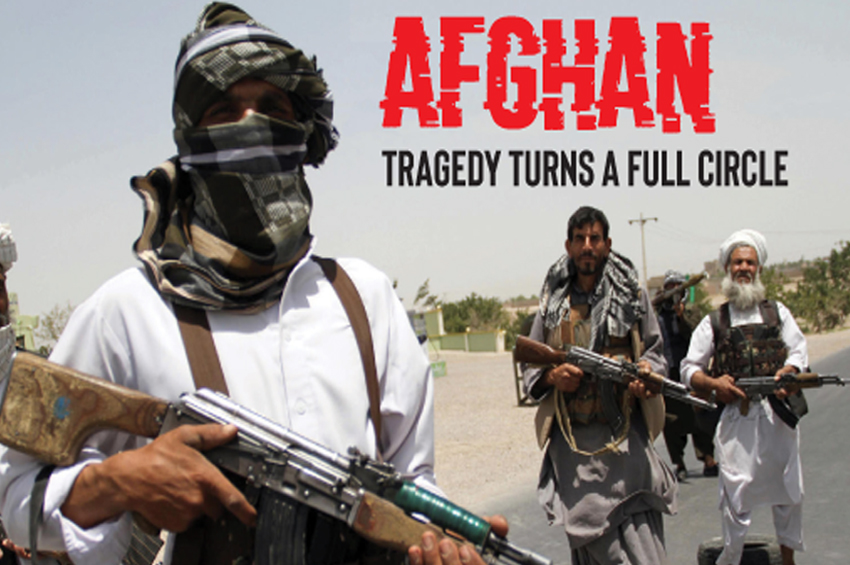It was in October 2001 that the US-led invasion of Afghanistan dethroned the Taliban from power in Kabul for having given sanctuary to the Al Qaeda leaders, including Osama Bin Laden, who had planned the 9/11 unprecedented terror attacks on the US that year.
The world was on the brink of another major war. The Bush administration in the US declared ‘War on Terror’ and even as it rained bombs in Afghanistan, the Al Qaeda operatives were later, very ironically, found holed up in Pakistan.
Twenty years later in August 2021, as US President Joe Biden announced a complete withdrawal of American troops from Afghanistan, followed by her NATO allies, history has turned a full circle with foreign policy experts now denouncing the US for “aiding the Taliban conquest of Afghanistan”.
Policy analysts call it America’s ‘Saigon moment’, terming the latest developments in Afghanistan-, wherein the Taliban so swiftly and facing least resistance overran considerable territory on emerging from their hideouts and so easily over-powered the US-trained Afghan national army to capture Kabul by when the Afghan President Ashraf Ghani had fled the country, and occupied the Kabul Palace-, as the “most humiliating defeat” for the US on a foreign soil since the most disastrous Vietnam War of the late 1960s’ to mid-1970s’.
The US, in its anxiety to wriggle out of its deeply entrenched presence and billions of dollars sunk in Afghanistan, making ‘peace’ with the Taliban turned out to be counterproductive. It has triggered a traumatic momentum, besides creating huge uncertainty as nobody knows what the Taliban regime has in the offing under ‘Sharia Law’, in a new Islamic Emirate.
There have been a series of reports in the International media on what a Taliban takeover spells for women and NGOs in Afghanistan in particular, amid possibility of Taliban completely reversing the democratic/modernization process there and deep fears of a violent ‘Jihadists’ revival in its neighbourhood.
Though India has initially said it will wait and watch the developments in Afghanistan, as all concerned Nations including India focus on quickly and safely evacuating their respective citizens through the Kabul airport by the August 31 deadline, the geo-political consequences of a stronger China-Pakistan nexus on the Northwest frontier, are extremely difficult to gauge at this moment.
A hint of what is possibly to come was seen in the horrific bomb blasts outside the Kabul airport on Thursday August 26, which killed more than 100 people including US soldiers and left many others injured. This was the first major terror attack since the Taliban takeover of Kabul.
Meanwhile, the U.S. Vice-President Kamala Harris, who completed her first visit to South Asia, rounding off with Vietnam after visiting Singapore, in a social media post termed the U.S. pulling out its troops from Afghanistan, as assured by President Joe Biden during his election campaign last year, as the correct thing to do. For India, the million-dollar question at South Block is whether New Delhi should talk to the Taliban regime or not.
Afghanistan abandoned
Aunohita Mojumdar writes:
Gut-wrenching images and stories have flooded the media sphere over the last few days. Hundreds flocking to the airport, clinging to the undercarriage of aircraft in desperation, journalists in hiding or seeking visas to leave, people in streets and in camps fleeing the violence that has preceded the fall of province after province to the Taliban.
The rapidity with which the Taliban have been able to take control over the entire country has surprised everyone including the Taliban themselves. However, while the speed may not have been foreseen, the collapse of the government had seemed inevitable for some time, especially after the steps taken by the US in rapid succession since the Doha deal, they struck with the Taliban in 2020.
Ironically called the ‘Agreement for Bringing Peace to Afghanistan’, the deal ensured the unconditional withdrawal of American troops. Desperate to leave, the US administration acceded to the Taliban insistence of talks without the presence of the elected Afghan government — thus de-legitimising the leadership that President Joe Biden is today blaming for the collapse of the government.
So what of the 20 years of international support? The entire nation-building project led by the Americans, regardless of what President Joe Biden now says, was based on an American view of what a liberated Afghanistan and Afghans should look and sound like, often with little understanding of the ground reality.




